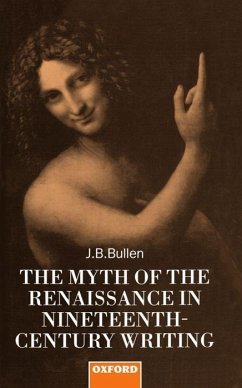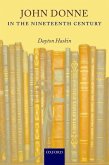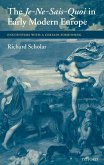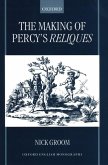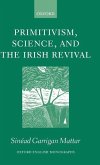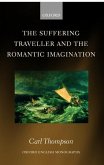Few people who use the word 'Renaissance' today realize that it is a comparatively recent historical idea, or that it is a 'myth' or story constructed by writers to explain the past. In this innovative and wide-ranging study, J. B. Bullen traces the genesis of that myth back to the late eighteenth and nineteenth centuries. The seeds of the idea are to be found in Voltaire, but Dr Bullen shows how it was taken up by French art historians and Gothic revivalists as an important element in the acrimonious political and religious debates within French historiography. The book's main focus, however, is on English intellectual life and the ways in which writers like Pugin, Ruskin, Browning, and George Eliot took up the terms established by Hugo, Rio, and Michelet in France and adapted a reading of fifteenth-century Italy to suit the special conditions of Victorian England. Ultimately, in the work of Swinburne, Arnold, Pater, and Symonds the Renaissance became a key factor in relating ethics and, in its aesthetics and late nineteenth-century phase, the myth figures prominently in an important discussion about the relationship between power, authority, and individualism. The Myth of the Renaissance in Nineteenth-Century Writing is a major contribution to the analysis of a neglected aspect of Victorian intellectual life and will be essential reading for all scholars and students of the nineteenth century.

